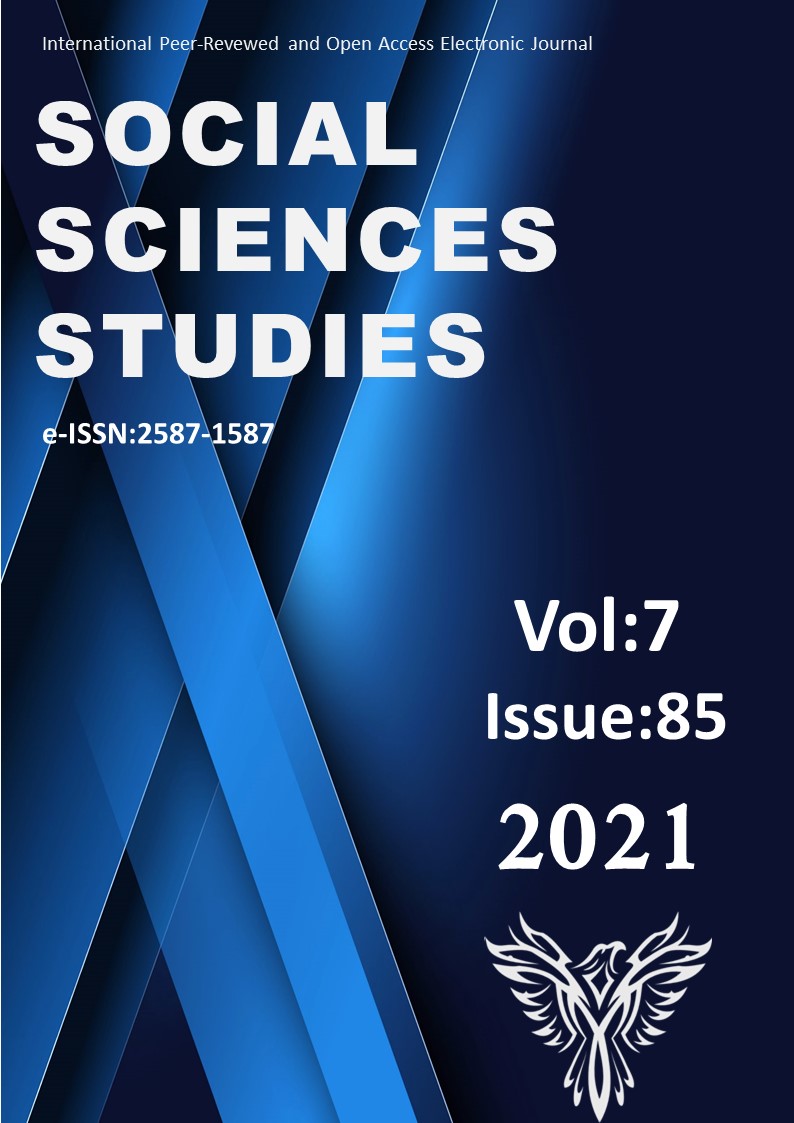ÖZEL GEREKSİNİMLİ ÇOCUĞA SAHİP ANNE BABALARIN ÖZ-ANLAYIŞ VE İYİMSERLİK DÜZEYLERİNİN BAZI DEĞİŞKENLER AÇISINDAN İNCELENMESİ
Author :
Abstract
Aile anne, baba ve çocuklardan oluşan toplumsallaşma sürecinin başladığı temel birimdir. Çocuklar ise toplumun geleceğini oluşturmaktadır. Aileler çocuk sahibi olmak istediklerinde sağlıklı bir bebeğin doğmasını beklemekte ancak bazı nedenler ve durumlar karşısında özel gereksinimli çocuğa sahip olabilmektedirler. Özel gereksinimli bir çocuğa sahip olmak karmaşık duygular hissetmelerine neden olabilmekte ve bu durum anne babaların öz-anlayış ve iyimserlik düzeylerini etkileyebilmektedir. Bu araştırmada, özel gereksinimli çocuğa sahip anne babaların, cinsiyet, aile birliktelik, eğitim durumu, ekonomik durum ve sosyal destek alma durumu ve çocuk engel türü değişkenleri ile öz-anlayış ve iyimserlik durumları incelenmiştir. Araştırmanın çalışma grubunu Ankara, Konya, Kayseri ve Karaman il ve ilçelerinde ikamet eden özel gereksinimli çocuğa sahip 529 anne, 195 baba olmak üzere toplam 724 kişi oluşturmaktadır. Anne babalara Neff (2003) tarafından geliştirilen, Türkçe ’ye uyarlaması Deniz, Kesici ve Sümer (2008) tarafından yapılan öz-anlayış ölçeği ile Balcı ve Yılmaz (2002) tarafından geliştirilen iyimserlik ölçeği ve araştırmacı tarafından hazırlanan kişisel bilgi formu uygulanmıştır. Verilerin analizinde elde edilen veriler normal dağılım gösterdiği için parametrik istatistik tekniklerinden t testi, tek yönlü varyans analizi (Anova), çıkan farklılığın kaynağını belirlemek için Tukey testi analiz teknikleri kullanılmıştır. Araştırma bulgularına göre anne babaların öz-anlayış düzeylerinin aile birliktelik, eğitim durumu, ekonomik durum ve sosyal destek alma değişkenleri ile anlamlı düzeyde farklılaştığı, iyimserlik düzeylerinin ise cinsiyet, aile birliktelik, çocuk engel türü, ekonomik durum ve sosyal destek alma değişkenleri ile anlamlı düzeyde farklılaştığı belirlenmiştir.
Keywords
Abstract
Family is the basic unit where the socialization process consisting of mother, father and children begins. Children, on the other hand, constitute the future of society. When families want to have children, they expect a healthy baby to be born, but they may have a child with special needs in the face of certain reasons and situations. Having a child with special needs can cause them to feel complex emotions and this can affect the self-compassion and optimism levels of the parents. In this study, the levels of self-compassion and optimism of parents with children with special needs were determined by the variables of the parents' gender, family togetherness, educational status, economic status, and social support and the type of disability of the child was analyzed. Study group of the research It consists of a total of 724 people, 529 mothers and 195 fathers with children with special needs residing in Ankara, Konya, Kayseri and Karaman provinces and districts. The self-compassion scale developed by Neff (2003) and adapted to Turkish by Deniz, Kesici and Sümer (2008), the optimism scale developed by Balcı and Yılmaz (2002) and the personal information form prepared by the researcher were applied to the parents. Since the data obtained in the analysis of the data showed normal distribution, among the parametric statistical techniques t test, one-way analysis of variance (Anova), Tukey test analysis techniques were used to determine the source of the resulting difference. According to the findings of the research the self-compassion levels of the parents differ significantly with the variables of family togetherness, educational status, economic status, social support and their optimism levels differ significantly with the variables of gender, family togetherness, type of child disability, economic status, social support has been determined.
Keywords
- Koyuncu, E. & Sargın, N. (2021). “Özel Gereksinimli Çocuğa Sahip Anne Babaların Öz-Anlayış ve İyimserlik Düzeylerinin Bazı
- sahip 529 anne, 195 baba olmak üzere toplam 724 kişi oluşturmaktadır. Anne babalara Neff (2003) tarafından geliştirilen,
- Türkçe ’ye uyarlaması Deniz, Kesici ve Sümer (2008) tarafından yapılan öz-anlayış ölçeği ile Balcı ve Yılmaz (2002)





